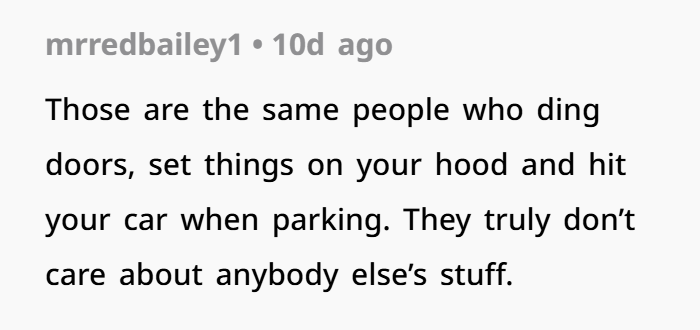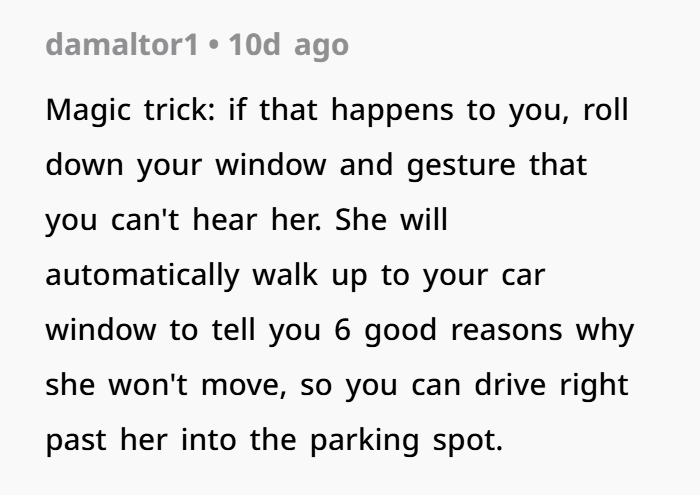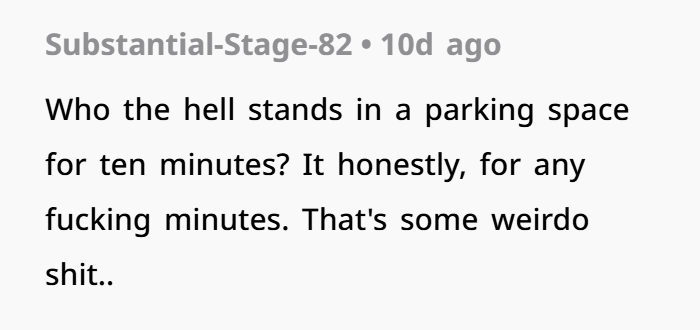Entitled Karen Tries to Save a Parking Spot on Foot—Gets Humbled Fast
In this quick but satisfying account of real-world entitlement being swiftly put in check, the narrator describes a classic mall parking lot standoff. It’s a busy Sunday, the lot is packed, and tensions are running high. Just as the narrator spots a precious open space, a woman—later dubbed “Karen” for her signature entitled behavior—steps into the space, physically occupying it to hold it for her husband. Despite being told this isn’t allowed, she digs in her heels, declaring her right to “save” the spot and even bragging about her husband’s supposedly important job.
With horns honking and tempers flaring, the narrator wisely brings in mall security. The guard calmly informs Karen that standing in a parking space is not a legitimate way to reserve it. The final blow to her bluster comes when her husband arrives—not to support her standoff, but to deflate it, revealing that he already parked elsewhere. With her face red and her soapbox crumbling, she storms off, leaving the narrator to claim the spot—and the moral victory.
Some people’s sense of entitlement knows no bounds, as they think they have a right over everything

The poster wanted to park in a mall parking lot, but a woman was “saving” it for her husband and refused to budge even when the security guard showed up
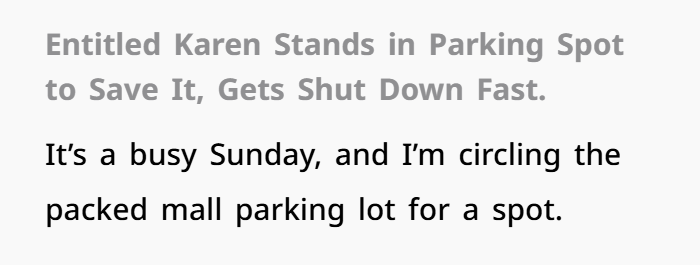

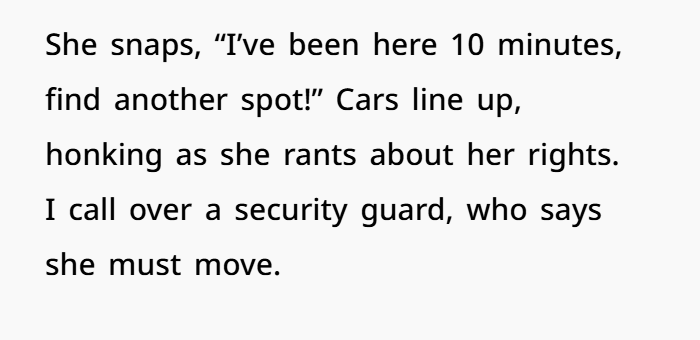
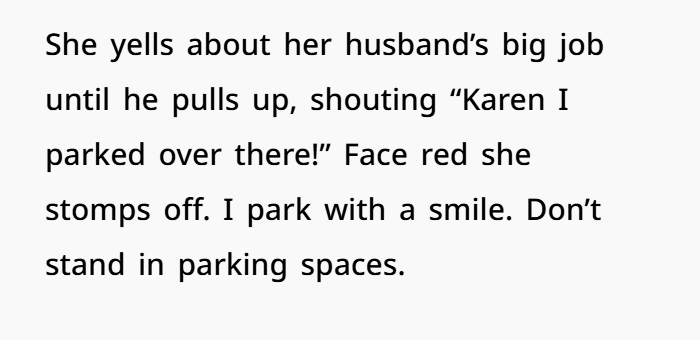
The Social Psychology and Legal Reality of Parking Lot Entitlement

While amusing, this incident brings to light a deeper issue: the way public spaces are contested and how entitlement manifests in everyday scenarios. Parking lots, particularly during peak hours, are stress zones where unwritten rules of fairness, order, and patience are constantly being tested.
The Legal View: “Saving” Parking Spots on Foot
From a legal standpoint, standing in a parking space to reserve it for someone else is generally not recognized as valid. While there’s no universal statute banning it, both local law enforcement and private property rules—like those enforced by mall security—typically side with drivers who are physically present in their vehicles. Most malls consider their lots private property, meaning their rules are enforced through internal security staff. In this case, the guard acted appropriately by removing someone obstructing traffic and public order.
In some places, this behavior could even be considered a public nuisance or obstruction, especially if it results in blocked traffic or potential altercations. According to AAA and other driver advocacy organizations, saving spots by standing in them is not only unsafe, but also unfair, and it often escalates tensions unnecessarily.
The Psychology of Entitlement
Karen’s behavior also reflects classic traits of entitlement culture, where individuals believe rules don’t apply to them. Psychologists link this to what’s called “egocentric bias”—a cognitive pattern where a person places their needs and rights above others in shared spaces. Standing in a spot for 10 minutes, despite clearly impeding drivers and disrupting traffic, signals a disregard for social norms and situational awareness.
Entitlement often escalates with public confrontation. This woman didn’t just try to save the spot—she doubled down when challenged, appealing to the imaginary status of her husband’s “big job” as justification. This is a classic example of status signaling, where people invoke perceived power or privilege to avoid consequences.

Social Norms and Collective Frustration
Parking etiquette is based largely on social contracts—informal agreements on how we behave in shared environments. Waiting your turn, not double-parking, and not blocking access are all unwritten but widely respected rules. When someone breaks these norms, especially in high-stress environments like a crowded mall, it provokes a collective response. The honking drivers are more than just impatient—they’re signaling group disapproval.
This kind of crowd behavior also illustrates diffusion of social enforcement: when an individual (like the narrator) takes action, others feel empowered to show support, whether by honking, nodding, or simply not siding with the transgressor. The presence of a security guard reinforces formal authority and allows the situation to de-escalate with structure rather than chaos.
The Ironic Twist: Karen’s Husband
The story’s final moment—a husband’s unexpected line, “Karen I parked over there!”—acts as both comedic relief and narrative justice. It exposes the fragility of Karen’s self-justification and adds a public dose of embarrassment, which often does more to correct entitlement than any argument. It also reveals that her actions were not only unethical—they were unnecessary.
Folks online quickly shared similar experiences they have had with parking spots and entitled people
